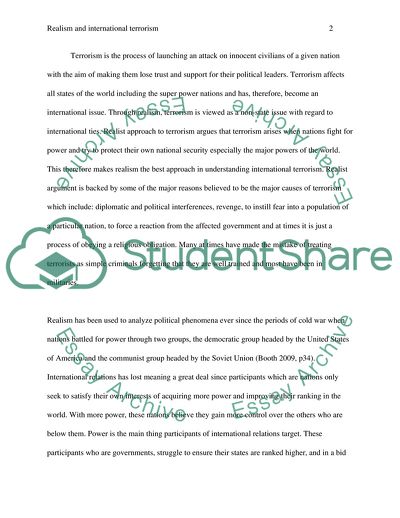Cite this document
(To What Extent Can Realism Help to Understand International Terrorism Coursework, n.d.)
To What Extent Can Realism Help to Understand International Terrorism Coursework. Retrieved from https://studentshare.org/military/1773198-to-what-extent-can-realism-help-us-to-understand-international-terrorism
To What Extent Can Realism Help to Understand International Terrorism Coursework. Retrieved from https://studentshare.org/military/1773198-to-what-extent-can-realism-help-us-to-understand-international-terrorism
(To What Extent Can Realism Help to Understand International Terrorism Coursework)
To What Extent Can Realism Help to Understand International Terrorism Coursework. https://studentshare.org/military/1773198-to-what-extent-can-realism-help-us-to-understand-international-terrorism.
To What Extent Can Realism Help to Understand International Terrorism Coursework. https://studentshare.org/military/1773198-to-what-extent-can-realism-help-us-to-understand-international-terrorism.
“To What Extent Can Realism Help to Understand International Terrorism Coursework”. https://studentshare.org/military/1773198-to-what-extent-can-realism-help-us-to-understand-international-terrorism.


